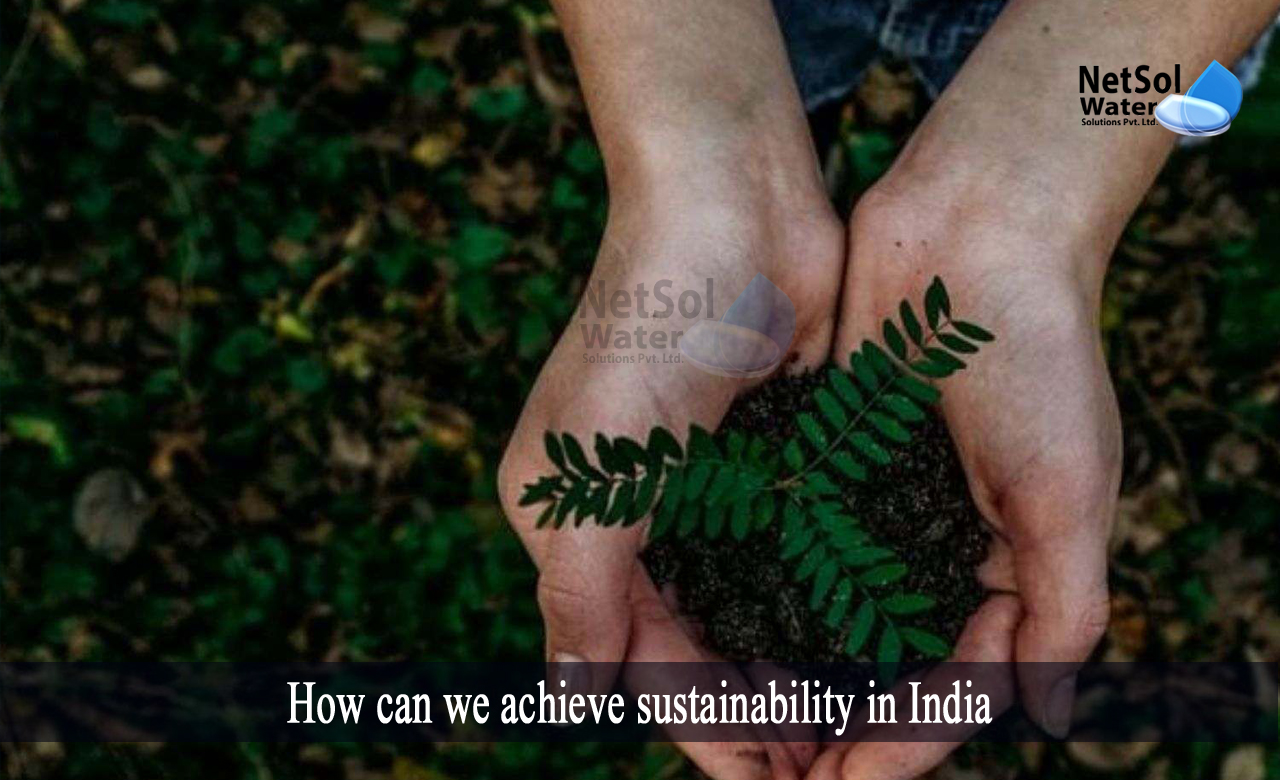Introduction
The attainment of economic development by careful and judicious use of natural resources, so that the requirements of the current generation are met without jeopardizing the needs of future generations, is referred to as sustainable development. It becomes our moral responsibility to hand over earth in excellent order, to the future generation.
India has made progress towards achieving the SDGs' social, economic, and environmental objectives. This achievement is even more significant in light of the significant human and economic costs, imposed by the COVID-19 epidemic, which has held countries back on their developmental aspirations, and created substantial barriers to the global implementation of the SDGs.
So, the question arises! Is India developing enough to achieve sustainability?
How can we achieve sustainability in India?
India has taken the following initiatives to achieve the objective of sustainable development:
i. Measures to Control Population
India has advocated for a variety of strategies to halt population growth. Among the different population control tactics, are increased awareness and knowledge of birth control methods, as well as literacy.
ii. Use of Environmentally Friendly Fuel
Because, fossil fuels such as gasoline and diesel generate large amounts of carbon dioxide, which contributes to global warming, the Indian government has encouraged the use of CNG and LPG.
iii. Utilization of Solar and Wind Energy
India, as a mild country, benefits from sunlight and wind power. These are two inexhaustible free gifts from nature.It addresses the issue of economic growth, while focusing on long-term development.
iv. Recycling and Plastic Bag Ban
On a daily basis, industrial and domestic waste accumulates. To sustain the ecosystem, it is necessary to create the habit of recycling waste items. Household garbage can be utilized as organic farming manure.
The Indian government has just prohibited the usage of plastic bags. This is a very positive start because, plastic bags do not breakdown easily and cause pollution when recycled.
v. Pollution Taxes and Penalties
The Indian government has made numerous measures to combat pollution. Regular car inspections are one of the solutions, as is a pollution charge on enterprises that create smoke.These restrictions are accompanied by massive penalties and possibly jail for lawbreakers.
vi. Application of Input Efficient Technology
Input efficient methods have been developed, which not only boost output and productivity, but also the efficiency with which inputs are used. On the one hand, efficient input usage leads to less exploitation of natural resources and, on the other side, improves India's future economic growth potential.
How are water and wastewater treatment firms assisting in achieving sustainability?
Netsol Water Solutions, one of the reputed water and wastewater treatment firm in India, provides cutting-edge solutions for achieving sustainability in India:
· Reverse osmosis (RO)
The finest level of filtration for purifying the water is reverse osmosis. The RO membrane blocks all dissolved salts and inorganic chemicals, as well as organic molecules with a molecular weight greater than 100.
· Nanofiltration (NF)
Nanofiltration is a specialized membrane technology that filters particles smaller than one nanometre in diameter. NF is a form of reverse osmosis that exists between UF and reverse osmosis.
· Microfiltration (MF)
Microfiltration removes particles ranging in size from 0.1 to 1 micron. The MF membrane often rejects suspended particles and big colloids, while allowing macromolecules and dissolved solids to flow through.
· Zero Liquid Discharge (ZLD) Plants
ZLD is a complex technique that requires more energy and money, than typical wastewater treatment and disposal procedures. In response to public opinion, decision makers will push regulatory incentives, which could make ZLD a fundamental choice in the future.
Conclusion
India's progress towards SDG achievement is both encouraging and problematic. The government has made a concerted effort to prioritize and implement sustainable development.
NITI Aayog has mainstreamed this into the national agenda, putting in place the processes and frameworks to collect data, align with strategic national priorities, assess ongoing progress, and hold self and other institutions accountable for meeting short- and long-term targets.
How else can we help?
We are proud to announce ourselves as a prominent Water Treatment Company in India, offering projects and services in the areas of WTP manufacturing, WWTP manufacturing, ETP manufacturing, STP manufacturing, Energy Management, and Waste Management.
Netsol Water is Greater Noida-based leading water & wastewater treatment plant manufacturer. We are industry's most demanding company based on client review and work quality. We are known as best commercial RO plant manufacturers, industrial RO plant manufacturer, sewage treatment plant manufacturer, Water Softener Plant Manufacturers and effluent treatment plant manufacturers. Apart from this 24x7 customer support is our USP. Call on +91-9650608473, or write us at enquiry@netsolwater.com for any support, inquiry or product-purchase related query.



